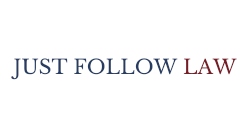We had our concluding Legal Methods seminar last week. We were asked to reflect on what skills we picked up and how applicable they could be beyond our written assignments. It was easy to rattle off a whole long list…IRAC, ratio, obiter, interpretation etc. But for me, it was how to think objectively and reason critically.
You might be thinking ‘of course, duh.’ How else would you do it?
Often I find it hard to be objective. Why? Because I will admit I am incorrigibly biased. And that bias drives my instinctive response and judgement of a matter. For instance, if I like a person, whatever he says, I tend to be open-minded and agreeable. If I dislike him, whatever he says, I am inclined to disagree, without first assessing if it might actually have merit. I suspect I am not alone. 🙂 So, now I am learning to consider the issue including differing views and approaches, without preconceived thoughts and emotions. Even if I may not agree with what is said, I pause to consider its validity.
Reasoning isn’t difficult if you accept rhetorics, excuses and post-rationalisation. Aren’t we guilty of them all at one point or another? But reasoning critically is both a learned science and art. For the past weeks, I have learnt to question my own reasoning with the ‘so what’ test. So what if A did this? How does it matter? So what if A didn’t do this? What does it change? Are the reasons justified? Backed by evidence? Be careful of the ‘but’ monster! We often use it to justify our reasoning and usually, it is either a presumption or an assumption. If we do not question every ‘if’ and ‘but’ critically, our reasoning probably won’t be as solid as we want it to be. It does introduce a certain degree of self-doubt. But I find it healthy because it widens my mental aperture and keeps me on my toes.
This change in perspective has permeated my daily life. Recently, my lecturer husband was ranting about his colleague challenging the marking rubric for his subject. Essentially, the marking guideline was simply deduction of marks for scenario A and zero for scenario B. But, he had included, in parentheses, “subject to tutor discretion”. Therefore, she wanted to propose a middle ground for scenario B. He thought it was very clearly stated – a set of binary outcomes – the tutor discretion was in deciding between either. The old me would have agreed with him and told him to reiterate the agreed guideline. The post Legal Methods me reminded him that he had given his colleague the right to challenge with his ‘permission clause’, much to his consternation. 😛
Just like Neo in The Matrix, I took the red pill when I entered law school. There’s no turning back.

Humbly,
Wendy


Leave A Comment